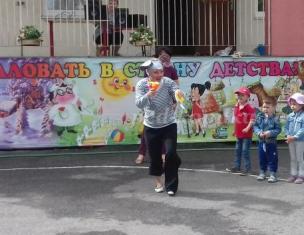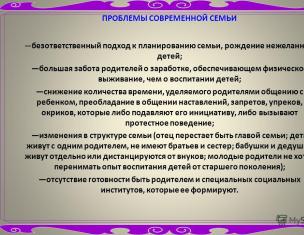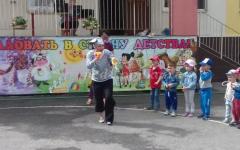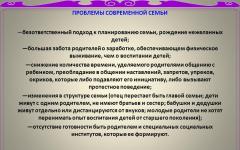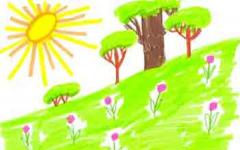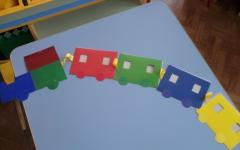A friend of our family once asked us:
Why do you need such a big library? Need a book - download it on the Internet, it's much more convenient! Books will soon become extinct as a species.
A home library is a space of culture, a way of life, a way of thinking
Indeed, many texts can be found online in just a few minutes. Sometimes on the Internet you can find such texts that you can’t get “live” in any way. But the home library is not a set of texts. The home library is an idea. Space of culture, way of life, way of thinking.
The home library seems to turn the family towards education and self-education. The library can be a method of teaching and educating our children, and not only in the field of literature.
Library: accent in the interior of the house
In the house the child lives, is brought up, studies. When we equip our home, we equip the environment for the formation of the personality of each of our children.
The house is like a temple. The decoration of the temple, its device calls, teaches, educates, directs, adjusts a person.
The house is like a school, a school. A well-designed interior of a school classroom sets you up for classes, makes students interested in the subject and helps to master the educational material.
What we will teach our children with the help of home decoration is for us, parents, the main educators and teachers of our children, the owners of the house to choose.
And if we arrange a home library, we already create it in our apartment, in our house educational space. We create an environment that in one way or another will affect the upbringing of our children. If in a house, in an apartment, in a room we found a place for books, allocated, arranged this place, it means that we have already introduced reading, literature and previous centuries of human culture into the world of our house. That's it, easily. Children live here and see these books, pass by them every day, touch the spines with their fingers... Thousands of books stored in the memory of our home computer cannot play such a role by definition. E-books are part of personal work. The home library is part of the life of our home.
At the same time, the library is not at all the property of rich interiors or large mansions. I myself grew up in a three-room apartment, where, in addition to my parents and my six brothers and sisters, there lived a home library. At first, these were somehow knocked together shelves, from floor to ceiling, in the entire corridor. And there were books in the bookcases in every room… Some people do renovations in a large apartment and throw all the books away like dustbins. Others in wrecked five-walls manage to work with thousands of books. The question is not in square meters and not in the amount of money, but in the way of life.
Library: a form of leisure
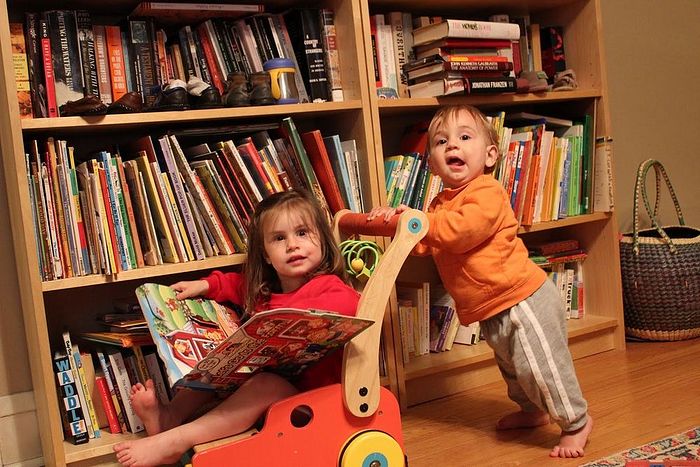
What to do in your free time? Often - what catches the eye. Turned on, chess on the table, an opened box with plasticine ... Children "have nothing to do" open books if they are surrounded by books. Because the title intrigued me, because the cover is beautiful (or because there isn’t one at all, alas, we have enough books with torn covers…) One child will take an album with views of old Moscow from the shelf – and this way he will get acquainted with history, culture, architecture. Another will open a book about insects, a third will look through the stories of O. Henry, a fourth will be read by Gogol, a fifth will discover how interesting Nechvolodov writes about the history of Russia.
However, if there is a library in the house, it is not at all necessary for children to sit at books from morning to evening. And it’s good: when they have free time, when they have “nothing to do”, let them run, play, make crafts or draw, but the home library will help our children sometimes choose reading in such cases.
Library: Shaping a Worldview
A book is an educator that can educate a person no worse than a “living” teacher
A book is an educator that can educate a person no worse than a “living” teacher. And what kind of educator will we entrust our children to? Anyone, if only he could write interestingly? If only he was once declared a "classic"?
If we managed to instill in our children a love of reading, then after reading one book, they are looking for something else to read to them. At first, they ask for help from their parents. But the older they get, the more often they choose books on their own. They choose books on their own in the place where books are easiest to find, namely, in the home library. They choose books on their own ... from those chosen by us.
With the help of the home library, we form the reading circle of our children. We can collect books that will support our parenting strategy. The circle of reading is a certain worldview. And this is especially important if the value system of the family differs from the value system of the environment. And the Christian family will inevitably in some way, and sometimes in many ways, be opposed to the world.
The circle of reading, first of all, includes fiction. Strive for self-improvement, overcome difficulties, listen to your inner world, think and reflect, compare and draw conclusions, learn from the mistakes of others, see yourself from the outside ... All this is fiction. Genius awakens the reader from the sleep of petty everyday life - and at each age this awakening is different ...
Fiction helps to grow creative people in any field. We open the biographies of scientists and see that in their childhood great mathematicians, physicists, engineers read adventures and novels. It is also interesting that the holy royal martyrs - both parents and children - read a lot of fiction. At everyone of the children of the last Russian emperor had their own library, in total about 3500-4000 thousand books. And this is in addition to large shared libraries. Fiction in the royal family was often read aloud together - and continued such reading even during imprisonment ...
What are we going to include in the circle of "family reading"? Of course, it must be high-quality literature. But if we are trying to raise children as Christians, we will not keep the great classics like Guy de Maupassant within easy reach and, with all our love for the great Leo Tolstoy, we will put Anna Karenina on the shelf, but we will put Resurrection away. We will treat children's literature proper even more strictly: for example, we will remove the stories and novels of writers in which kind and sympathetic revolutionaries and their little associates help to expose Orthodox "miracles" set up by priests and monks to fool the common people, where the heroes dream of killing rich bourgeois and hated king. I am not calling for a ban on such literature, by no means. But if we strive to educate our children in the faith and chastity of a holistic perception of the world and human relations, then we will perceive the great anti-Christian literature, rather, as an interesting work for specialists, a unique monument of the era or a living illustration of life "on the other side." I do not read such books to my children at night, I do not offer them such literature for independent reading. If children read such books, then let it happen as late as possible. Then these books will be perceived as "strangers".
And there is enough foreign literature. Literature that was created by great, talented and even brilliant authors - and filled with theomachism, fornication, rudeness. Some of these authors deliberately fought against Christian teaching and/or church consciousness, some were simply a product of a non-Christian, anti-Christian culture. But the more talented the writer, the more interesting he writes - the more readers, our children, are immersed in the world created by the author, the more serious and deeper the impact of the author-educator on the soul of the child.
But still, a significant part of the treasures of world literature are works written by Christian authors, and the world created by this literature is based on the values of the Christian life. And by creating a home library, we offer this world to our children.
Each family has its own favorite books and its own circle of reading. In our family, a child is looking for "something to read" - and here are the shelves with children's literature, from Vladimir Dahl and Korney Chukovsky to Seton-Thompson, Kipling, Hector Malo, Sergei Aksakov, Nikolai Leskov, the same Leo Tolstoy, Garin-Mikhailovsky, Ivan Shmelev, Leonid Panteleev… If they want adventure, they will find Daniel Defoe, Stevenson, Jules Verne, Walter Scott, Mine Reed. Historical literature? Krasnov about Suvorov or the books of Svyatopolk-Mirsky. Detectives? Here is Chesterton, here is Conan Doyle. Girls will find several shelves with books by Lydia Charskaya, Francis Burnett, Louise Alcott, and for the older ones - on the shelves of Charlotte Brontë, Jane Austen, Pushkin, Turgenev... An old great-grandmother's collected works of Dickens...
If there is a large convenient library in the house, the children will not soon get out of its influence. They will start looking for books "on the side" later, when with the help of "our" literature we have already raised children in "our" value system. We will educate our family throughout our life, relationships in it, conversations with children and with children, our family's social circle. If, of course, we succeed in raising our children this way ...
Library as an incentive for self-education
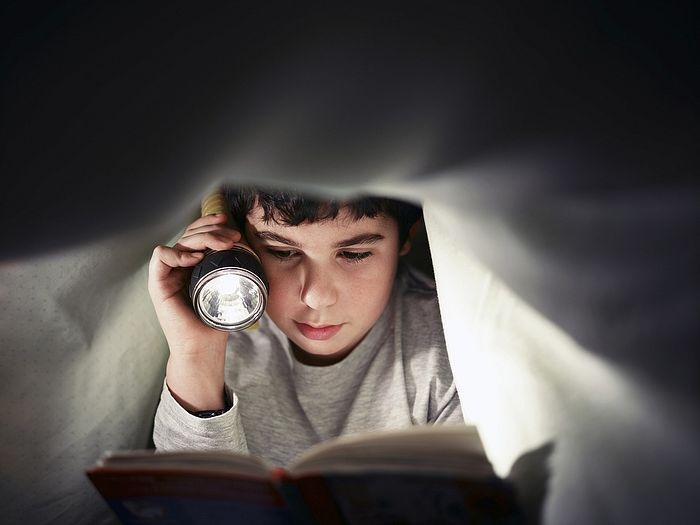
When we put books on the shelves in our house, we create an opportunity for self-education for our children. I have already talked about the Bogolyubov family, where the father-priest brought up three outstanding Soviet scientists. The Bogolyubovs lived in an apartment where a large common room was at the same time a dining room, a place for mother's music lessons and father's study. And the books were kept here. And this scientific literature, with which their father worked, attracted children, and the kids, having barely learned to read, picked up encyclopedias and other "non-children's" books. Such reading greatly broadened the horizons of children and prepared them for their life path.
Yes, in the home library there can be not only fiction, but also books devoted to various branches of science. Physics, mathematics, geography - everything that is interesting and important for parents can be open and accessible to children with the help of the library. A child walks past a cabinet with books on medicine. And one day he will stop and look, just out of curiosity. And maybe open a book and read it. He will begin to read on his own, which means that his attention will be active, and he will learn the information as fully as possible. So the child's curiosity, combined with the availability of books, will contribute to the education of our children. Or maybe it will help children understand their interests in life, help them choose, if not a profession, then a hobby.
I'll tell you about another Soviet academician. This is a physicist, the leader of Soviet mechanical engineering, one of three Russian winners of the James Watt Gold Medal - the most prestigious international award for achievements in engineering - Ivan Ivanovich Artobolevsky. His father, a priest, later a new martyr, was professionally engaged in history. Ivan respected and loved his father. Therefore, the child liked to listen to the conversations of his parents. The boy was interested in learning more about the story that his father loved so much. And the child went to the parent library, where he read the works of V.O. Klyuchevsky, his father's teacher. Read, remember. And I fell in love with national history for the rest of my life. So to parents, overheard parental conversations and the availability of books in the home library did what a whole staff of school history teachers often cannot do - they gave the child nothing less than a basic historical education and, most importantly, love for native history. Such "unorganized" home education, characteristic of many intelligent families, subsequently compensated for the narrowness of special technical education, and "technician" scientists in this case turned out to be, on the whole, people of great culture.
I myself was also touched by a similar effect of the availability of parent books. When I was twelve years old, my mother was expecting another baby, and at the same time, a lot of literature about pregnancy and childbirth appeared in the house. Out of pure curiosity, I started reading these books. After reading everything I could on this topic, I turned to books on child physiology, popular books on pediatrics. In these books, women were charged with starting to prepare for pregnancy and childbirth “as early as possible,” and I decided that it was time for me to start this preparation. So, inadvertently, “from childhood”, I began to prepare for motherhood - “eat right” and even do special exercises for stretching and posture. It’s just that the corresponding books, firstly, were generally in our house, and secondly, they were “in the public domain”.
This is how children who grow up among books find something of their own, find their interests, find themselves in such reading. And what is it that will interest our children - we cannot know this. One child will read novels, and the other - detectives, one child will pay attention to the era of the Napoleonic wars, and the third will solve all the problems of Perelman.
When we collect a home library, when we sort books in it, when we put some literature on the middle shelves (at the level of the children's eyes), we can draw the child's attention to a particular topic. So, in the upbringing of the heir to the Russian throne, Tsarevich Alexei Romanov, the study of native history was one of the most important subjects, and therefore in the boy’s classroom, next to his bedroom, not only maps and teaching aids were placed, but also many books on the history of the Romanov dynasty and history of Russia.
And at the same time, we cannot draw conclusions: here, he is interested in anatomy, he will grow up as a doctor. Maybe a doctor, or maybe an artist (anatomy will come in handy!), Or maybe childhood hobbies will not affect the choice of life path. A boy keen on physics can become a theologian and a priest. Fascinated by history and biology, like the same academician I.I. Artobolevsky, will become a mechanical engineer. But be that as it may, the circle of reading, the cognitive interest of children will certainly play a role. If a child is really carried away by a particular field of knowledge, the inquisitiveness of the child's mind, a keen interest in the subject will allow him to independently receive a real basic education in a particular subject, which means to broaden his horizons, which means in the future to become a more versatile person than is possible with organized school and special education.
And it is not so important what area of knowledge the child will be passionate about. This is already a skill of self-education. Already - the joy of self-education. And in any case, it will be a hobby. And that means - a distraction from the meaningless fermentation on the network or sitting in front of the monitor. In general, a distraction from meaninglessness.
The Internet cannot create an "educational need"
You can say: yes, all these books can be downloaded on the Internet, you can find information in a convenient, interactive, modern format. But the Internet cannot form an "educational need", the Internet does not form the motivation for education. He can only respond to the already prepared interest of the child.
So, we have a lot of books on architecture in our home library. And one of my sons was interested: I think he noticed the large size of these books. He began looking at pictures, reading, then copying different types of orders, drawing classical buildings with columns. And then, using plans from design books, he began to draw designs of various buildings on graph paper. If we had the richest electronic library on the same architecture, it is unlikely that my eight-year-old kid would have “found” these albums, it would hardly have occurred to him to study the architectural styles of different eras ... And he would hardly have become interested in this topic simply “in Internet”: for some reason, you still need to want to enter some phrase into the search before the great Web gives out its million answers.
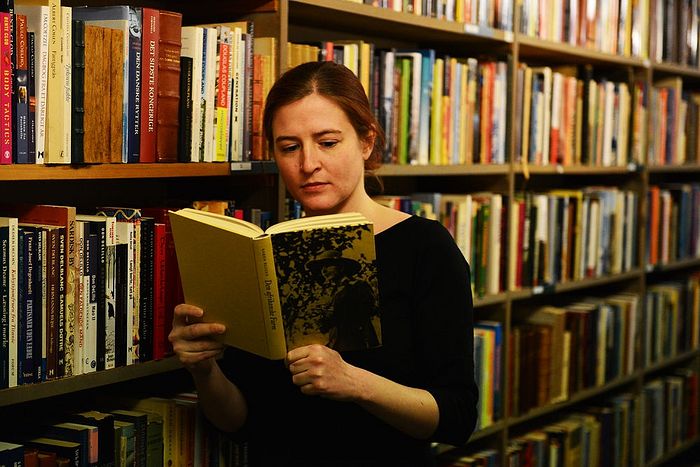
In order for our home library to help us in raising children, in introducing them to literature, so that it would be an incentive for self-education for all of us, I made for myself such a plan, which, in my opinion, can make the library “work”:
- Arrange the library so that it is accessible to children. If the library is a locked room, it is “turned off” from the space of the house. It would be nice to keep the books so that they are constantly in front of the eyes of the children. If it is possible to allocate a separate room for the library, then it is good to put desks and desktops for children in this library. And tables for parents too. The child will do homework every day, do something - and will always be surrounded by books. And he will also see how parents work with books.
- Sort books by topic. Not only for the convenience of working with them. Inscriptions on cabinets or shelves, separate cabinets on topics will attract the attention of the child, declare this or that topic as “existing”.
- Pick up books for children of different ages. The easier it is to choose a book, the more likely it is that the child will make this choice at all.
- In general, to select books for the library. Mercilessly destroy all base and immoral waste paper. Remove away, higher, deeper great literature, which actively contradicts the family's value system, so that work with "foreign" books is possible only when the basic moral ideas of a grown child have already been formed.
- While reading, when there is such a desire, make notes in the books with a pencil. For this, huge fields were made in medieval folios. We pick up a book from our library and see that this place interested dad, but mom didn’t agree with this moment. It is incredibly interesting to read the notes made on the margins of books by my husband - these are cross-references to various authors of various eras ... And then it turns out that we read the book as if together with one of our relatives. This is another unique difference between a paper book and an e-book. And in this case, the home library becomes an interesting kind of such communication of one's thoughts to each other through books.
And last but not least, I think. Arranging a library not for "educating children", but for ourselves, simply taking into account its pedagogical effect. If something is important and interesting to us, we will not close ourselves in our “work”, but we will offer it to our children, including with the help of books. If we want to interest children in something, in the same story, we ourselves, together with the children, will study what we would like to introduce them to. Let the children see how we work, what we read. Let's read together, work together. We will discuss what we read, we will compare books, we will offer children the criteria for selecting literature for reading and discuss these criteria together. We will be attentive to our children, we will be close to them, we will teach them and learn with them. In general, we will live together. United home, united values. Our home library can also help this unity, the upbringing of these values. If we really aspire to this unity and these values.


